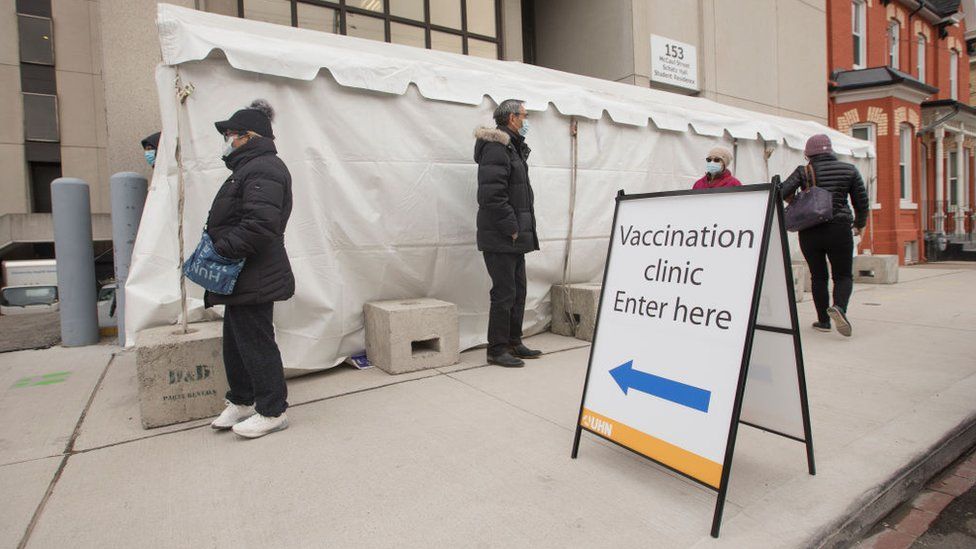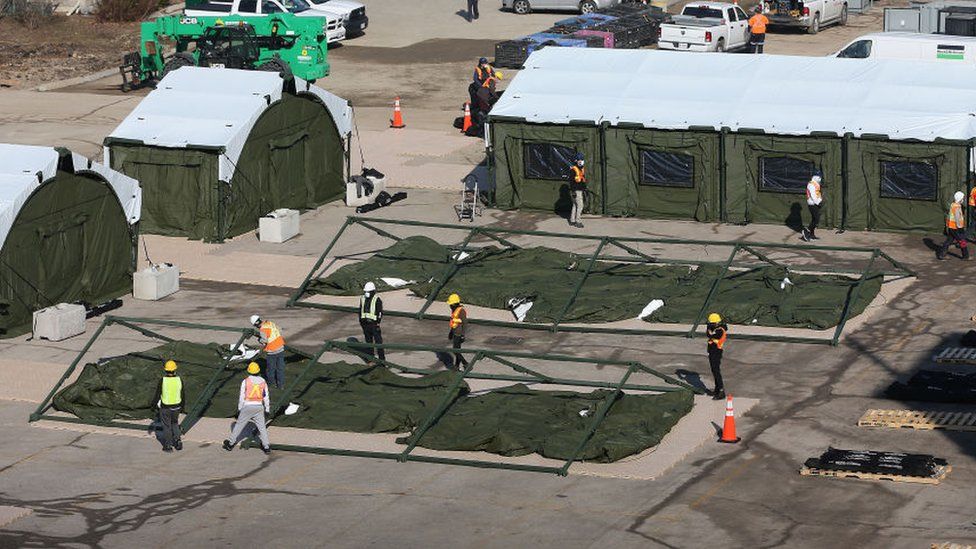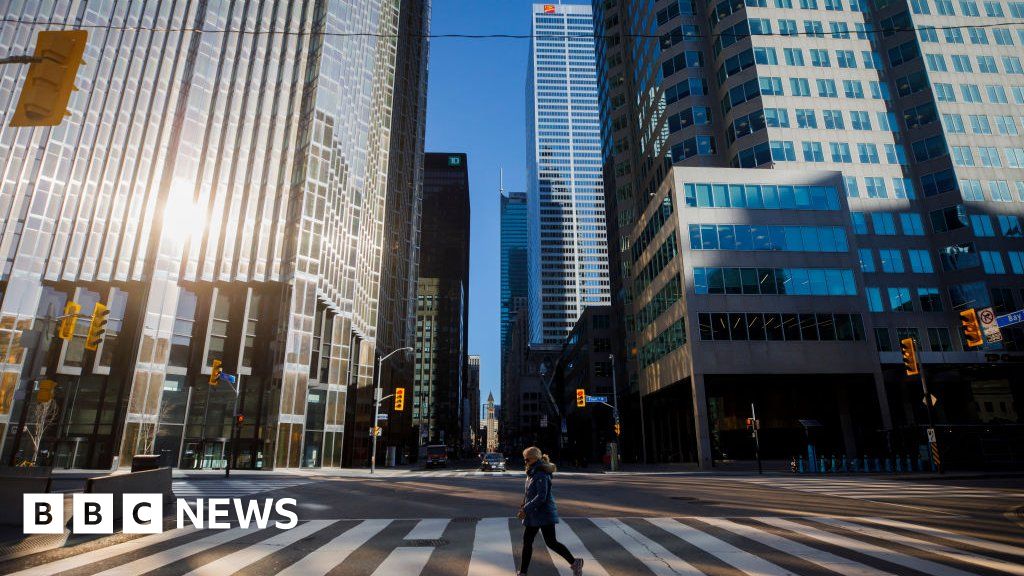
Canada has secured the largest vaccine portfolio in the world but has so far failed to get its inoculation programme off the ground, even as it faces the pandemic’s third wave.
In December, Canada’s Deputy Prime Minister Chrystia Freeland announced a C$1bn (£580m) investment in vaccine agreements. Ottawa had secured seven separate vaccine purchase contracts, she said, enough for each Canadian to receive 10 doses, free of charge.
Four months later, Canada is still lagging behind most Western nations in vaccinations. It is currently ranked 44 in global rankings of vaccinations per capita, according to data compiled by Bloomberg.
This week, the country welcomed an announcement from Prime Minister Justin Trudeau that Pzifer-BioNTech had agreed to accelerate delivery of five million vaccine doses, bringing them forward from late summer up to June.
But the country is now waging war with a surge of new Covid-19 variants which threaten to overwhelm an already strained hospital system. The country has recorded more than 980,080 infections and almost 23,000 deaths.
Vaccine roadblocks
Canada was criticised at the end of last year for buying up multiple times the supply it needs to cover its population.
It had signed deals with seven vaccine suppliers – including Moderna, Pfizer, AstraZeneca and Johnson&Johnson – for a total of over 400 million doses.
But without the capacity to produce the vaccines domestically, Canada has been forced to rely on outside manufacturers, mainly in the EU and the US, where vaccine exports have been tied up with delays or cancelled altogether.
Just over 12 out of every 100 Canadians have received at least one dose of vaccine, compared to about 30 in the US and 46 in the UK.

Immunisation has been further frustrated by shifting guidance on the AstraZeneca vaccine. In late February, Health Canada authorised its use for all Canadians 18 and older. But this week, the government said that the vaccine should not be used in adults under age 55, citing questions over blood clots.
Some 500,000 AstraZeneca doses have already been delivered to Canada and 1.5 million doses are to be shipped from the US this week. Another 4.4 million doses are expected by the end of June.
‘Ramp-up phase’
Some news this week suggests that Canada might be about to change its vaccine fortune.
Prime Minister Trudeau on Tuesday announced Pfizer would speed up delivery of 5 million vaccine doses – getting them to Canada by June. This new timeline means Canada should receive some 17.8 million doses of the Pfizer vaccine between April and June – more than a million doses each week.
The first doses of Johnson&Johnson’s single-shot vaccine are expected by the end of April. Canada has pre-ordered 10 million doses of this vaccine, with the option to order 28 million more.
“We now have handily exceeded our promised target of six million doses delivered before April,” Mr Trudeau said. “And this week, we begin our ramp-up phase.”
And Canada is also working to stave off vaccine shortfalls in future.
The federal government and the government of Ontario, Canada’s most populous province, are expected to announce a nearly C$1bn investment in a vaccine production and distribution facility in the Toronto area, according to the Toronto Star newspaper.
Pharmaceutical giant Sanofi SA will expand Canada’s influenza vaccine production capacity, producing enough for the entire population in six months. The facility is expected to be completed by 2027.
A third wave
Some experts are warning that this vaccine catch-up may not be enough to halt the pandemic’s third wave amid rising Covid-19 cases and hospitalisations.
“The ongoing increase in infection rates is now playing out in our hospitals with rising trends in severe and critical illnesses, placing renewed strain on the health system,” said Theresa Tam, Canada’s chief public health official.
The Public Health Agency of Canada has projected that if Canadians increase or maintain current levels of social interaction, Covid-19 infection rates will spike to the highest levels the country has seen so far.
Experts have linked the surge to a growing number of Covid-19 variants detected in Canada. Dr Tam said on Tuesday that there had been a 64% increase in new variants in Canada over the last week alone.
The current variant spread is just the “tip of the iceberg”, she said.

The “new variants of concern” make up more than two-thirds of all new cases in Ontario, according to a report from the province scientific advisory panel. Compared with earlier strains, the new variants are associated with a 63% increased risk in hospitalisation and a 56% increase in death.
And hospitals are bearing the added burden. According to the report, the number of people in hospital with Covid-19 is now 21% higher than three months ago – when Ontario began its province-wide lockdown. Intensive-care occupancy is 28% higher.
“Am I missing something here, or is this presentation actually predicting a disaster?” a journalist asked Dr Adalsteinn Brown, an author of the report, last month.
“No,” Dr Brown said. “I don’t think you’re missing anything.”
